Devolution. devəˈlo͞oSHən. The Oxford Dictionary describes it as “The descent or degeneration to a lower or worse state.” My personal example: The human race appears to be in a state of devolution – evolving backwards toward an earlier Neanderthal period – as evidenced by the barbaric killing of four unarmed college students by troops with M1 rifles.
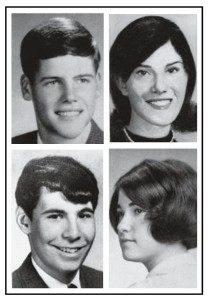 I’m referring, of course, to the Kent State University killings of May 4, 1970. Here’s the story, which we all (should) know: Students at the university were protesting America’s escalating involvement in the Vietnam War. National Guard troops, called in to control the crowds, opened fire and killed four unarmed activists. The Guardsmen claimed the students were becoming unruly and aggressive when told to disperse, and said they fired on the crowd in self defense: between 61 and 67 shots in a 13 second period. Eight Guardsmen were indicted, but in 1974 a federal judge dismissed the case against them. The victims are shown in this photo, clockwise from top left: William Schroeder, Allison Krause, Sandra Lee Scheuer, and Jeffrey Miller. Nine others were wounded.
I’m referring, of course, to the Kent State University killings of May 4, 1970. Here’s the story, which we all (should) know: Students at the university were protesting America’s escalating involvement in the Vietnam War. National Guard troops, called in to control the crowds, opened fire and killed four unarmed activists. The Guardsmen claimed the students were becoming unruly and aggressive when told to disperse, and said they fired on the crowd in self defense: between 61 and 67 shots in a 13 second period. Eight Guardsmen were indicted, but in 1974 a federal judge dismissed the case against them. The victims are shown in this photo, clockwise from top left: William Schroeder, Allison Krause, Sandra Lee Scheuer, and Jeffrey Miller. Nine others were wounded.
Gerald Casale, Mark Lewis and Mike Mothersbaugh were studying art at the college at the time of the tragedy. In the late ’60s they had become fascinated with the idea that society was regressing rather than evolving – de-evolving, so to speak. War, assassinations, civil unrest — it all fed into the mix. They began developing an interest in satirical art that reflected America’s increasing dysfunction and conformity. But what began as parody soon became deadly serious after the campus massacre on May 4. When the three friends formed a post-punk/art-rock band a few years later, they named it Devo, a shortened form of devolution.
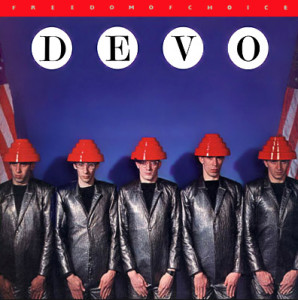 “All I can tell you is that it completely and utterly changed my life,” Gerald Casale told Brian L. Knight of The Vermont Review. “I was a white hippie boy and then I saw exit wounds from M1 rifles out of the backs of two people I knew. Two of the four people who were killed, Jeffrey Miller and Allison Krause, were my friends. We were all running our asses off from these motherf**kers. It was total utter bullshit. Live ammunition and gasmasks – none of us knew, none of us could have imagined. They shot into a crowd that was running. I stopped being a hippie and I started to develop the idea of devolution. I got real, real pissed off.”
“All I can tell you is that it completely and utterly changed my life,” Gerald Casale told Brian L. Knight of The Vermont Review. “I was a white hippie boy and then I saw exit wounds from M1 rifles out of the backs of two people I knew. Two of the four people who were killed, Jeffrey Miller and Allison Krause, were my friends. We were all running our asses off from these motherf**kers. It was total utter bullshit. Live ammunition and gasmasks – none of us knew, none of us could have imagined. They shot into a crowd that was running. I stopped being a hippie and I started to develop the idea of devolution. I got real, real pissed off.”
Although Devo never recorded a song specifically about the massacre, Casale once told Hustler magazine, “I don’t think I would have started Devo without that change in me.”
The most famous song to emerge from the tragedy was Crosby, Stills, Nash and Young’s “Ohio,” written by Neil Young and released one month after the killings. It peaked at number 14 on the Billboard charts. Through the years, artists have recorded at least 30 lesser-known songs about the slaughter. Here are a few.
Steve Miller’s “Jackson-Kent Blues” appeared on his 1970 album “Number 5.” This song addressed both the Kent State incident and a tragedy on May 15, 1970, in which police opened fire on Vietnam War protestors at Jackson State University, killing two and injuring five. (The words of the song are hard to decipher. Click here to see the lyrics. )
The Beach Boys recorded “Student Demonstration Time” for their 1971 album “Surf’s Up.” It’s based on the song “Riot In Cell Block Nine,” written by Jerry Leiber and Mike Stoller. Beach Boy Mike Love wrote new lyrics to the original melody.
Genesis recreated the Kent State events from the perspective of the National Guard in their 1970 song “The Knife.” Voices of the students chant “We are only wanting freedom,” as a male voice calls out, “Things are getting out of control here today,” followed by “Okay men, fire over their heads!” Sounds of gunshots, screaming and crying are interwoven into the song.
Joe Walsh, who briefly attended Kent State, wrote 1972’s “Turn to Stone” in response to the shootings. He also mentions the event in the 1992 song “Decades.”
A very young Bruce Springsteen wrote the unreleased “Where was Jesus in Ohio” in 1970 as a response to the killings. Here’s a rare recording of the song:
Jon Anderson of Yes said that some of the lyrics of “Long Distance Runaround” from band’s 1971 album “Fragile” were inspired by the Kent State murders, particularly the line “hot color melting the anger to stone.”
Dave Brubeck wrote his 1971 cantata “Truth Is Fallen” in direct response to the tragedies at Kent State University and Jackson State University.
And, of course, here’s the most famous song of all:
For the record, Chrissie Hynde of The Pretenders was also a Kent State student at the time of the shootings; she knew slain student Jeffrey Miller. Like so many others, she dropped out of school after the killings.
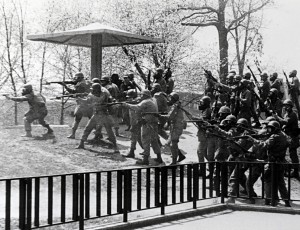 In many respects, Kent State marked the end of the peace-and-love Woodstock era. Said Gerald Casale to Mark Frauenfelder of Boing Boing in 2010, “Until then I was a hippie. I thought that the world is essentially good. If people were evil, there was justice… and that the law mattered. All of those silly naïve things. I saw the depths of the horrors and lies and the evil. The paper that evening, the Akron Beacon Journal, said that students were running around armed and that officers had been hurt. So deputy sheriffs went out and deputized citizens. They drove around with shotguns and there was martial law for ten days. 7 PM curfew. It was open season on the students. We lived in fear. Helicopters surrounding the city with hourly rotating runs out to the West Side and back downtown. All first amendment rights are suspended at the instant the governor gives the order. All of the class-action suits by the parents of the slain students were all dismissed out of court, because once the governor announced martial law, they had no right to assemble.”
In many respects, Kent State marked the end of the peace-and-love Woodstock era. Said Gerald Casale to Mark Frauenfelder of Boing Boing in 2010, “Until then I was a hippie. I thought that the world is essentially good. If people were evil, there was justice… and that the law mattered. All of those silly naïve things. I saw the depths of the horrors and lies and the evil. The paper that evening, the Akron Beacon Journal, said that students were running around armed and that officers had been hurt. So deputy sheriffs went out and deputized citizens. They drove around with shotguns and there was martial law for ten days. 7 PM curfew. It was open season on the students. We lived in fear. Helicopters surrounding the city with hourly rotating runs out to the West Side and back downtown. All first amendment rights are suspended at the instant the governor gives the order. All of the class-action suits by the parents of the slain students were all dismissed out of court, because once the governor announced martial law, they had no right to assemble.”
Tin soldiers. Four dead in O-hi-O.
© Dana Spiardi, May 4, 2014

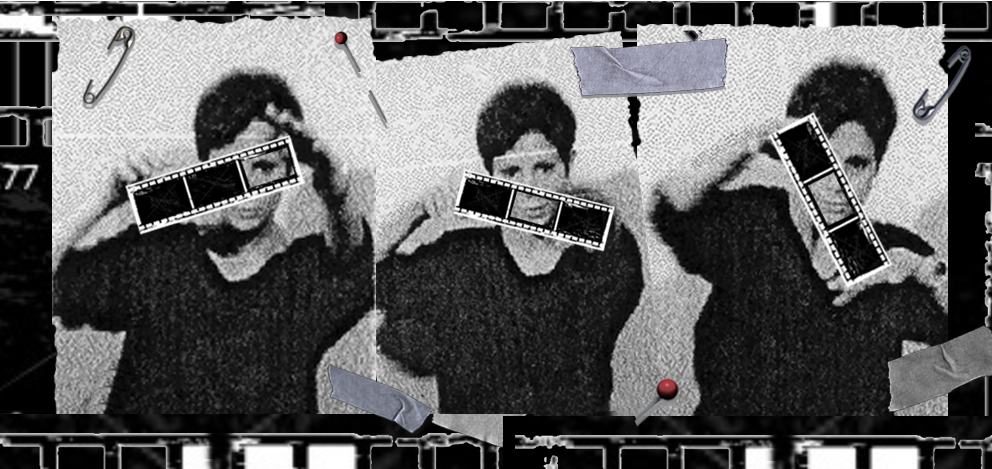
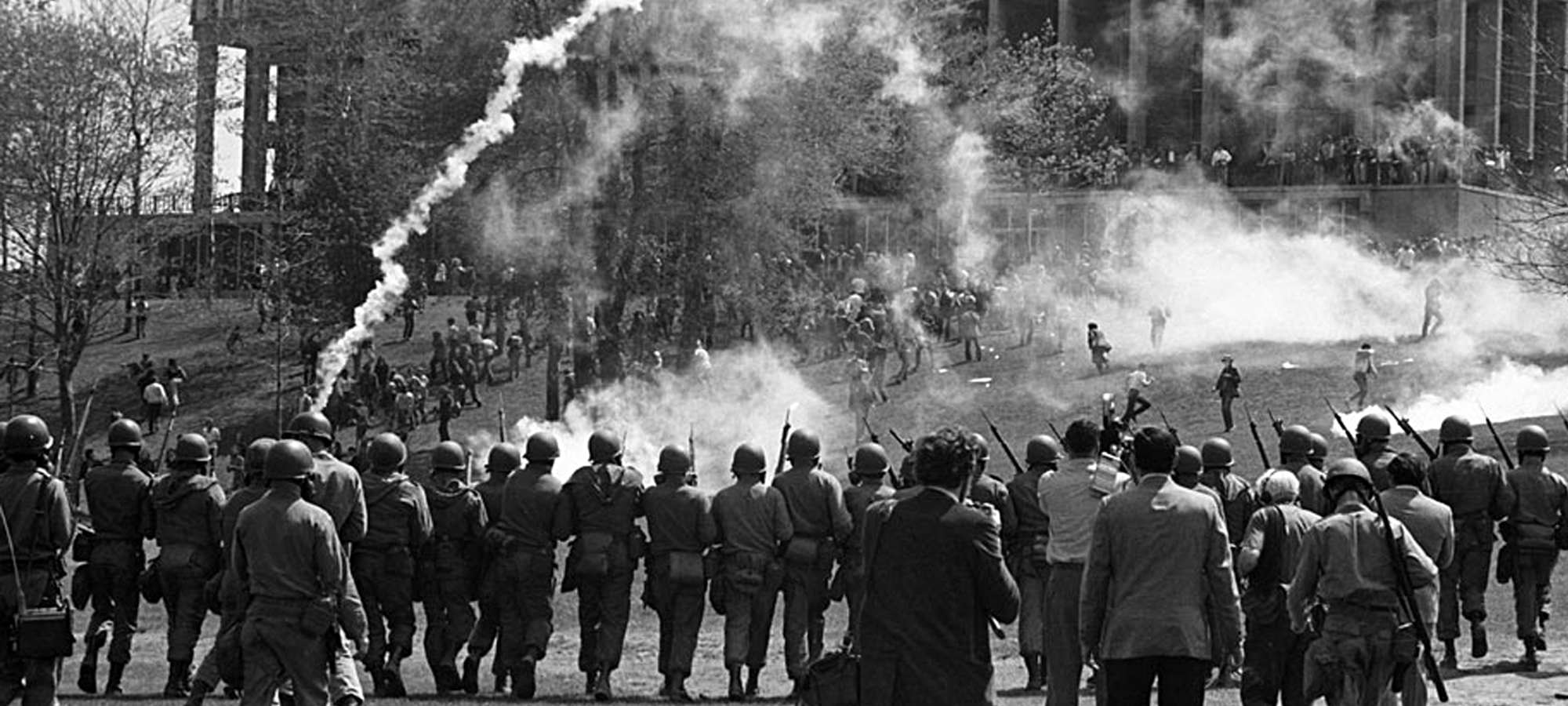
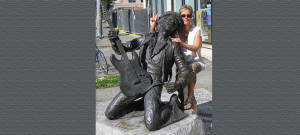
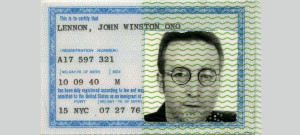
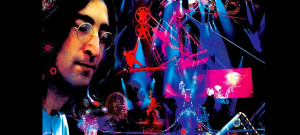
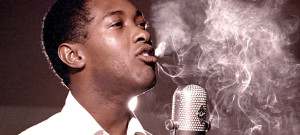
Powerful. Never knew so many other songs were written. Devolution’s one of my new favorite words. Had no idea about DEVO. Thought they were geeks on speedballs.
Devo, who knew? Great history lesson from a tragic event. Well done.
Amazing writing! I was too young but a great fan of the music of that time. I can never really understand or know what it was like during that time. The lyrics hold, obviously, different meanings and feelings for me since I was not so politically savvy of the hippy movement. Just connected to the ideals. However, after reading this and in light of these wacky times….many chords were struck and you have helped me see deeper into this event. Thank you for the awesome facts and wonderful videos!! I LOVED the long distance song….don’t think I ever knew it was connected to KSU. But the footage and music of my all time fav (and over-played!) Ohio, brought tears to my eyes.
Thank you ??